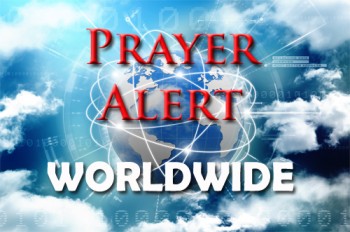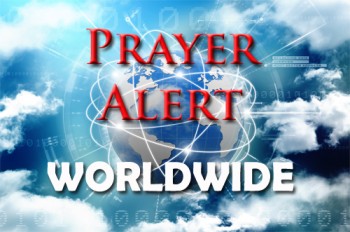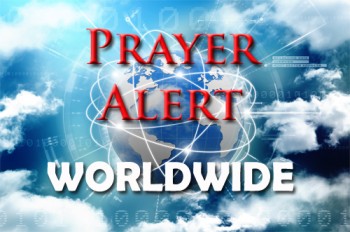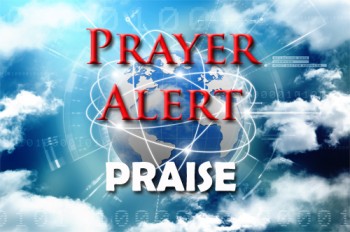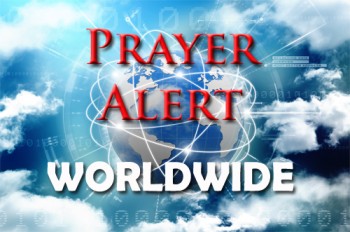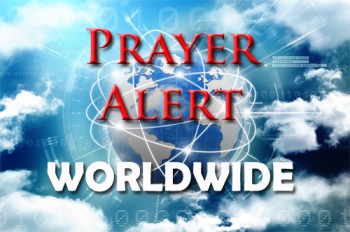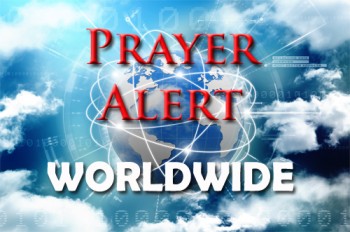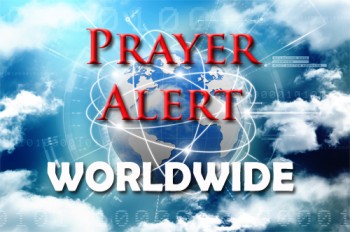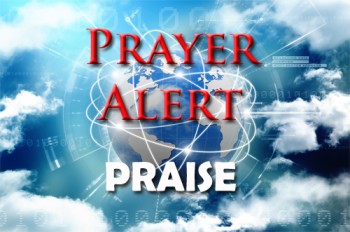Displaying items by tag: Africa
Ethiopia: man-made famine crisis
In Tigray 353,000 starving people are in phase 5 (catastrophe) and 1.769 million in phase 4 (emergency). In other words, famine, though the Ethiopian government refuses to call it famine. Huge numbers of deaths by starvation are unavoidable. In remote villages people are found dead in the morning, having perished overnight. Women who were kidnapped by soldiers and held as sexual slaves, now in hospitals or safe houses, are separated from their children, tormented by the fear they will starve without their mothers' care. Death by starvation happens when the undernourished body consumes its own organs to generate enough energy to keep a flicker of life. Most of the nation is controlled by rebels or military who do not cooperate with humanitarian agencies. Eritrean forces joined the conflict and along with the Ethiopian army they pillage, burn crops, destroy health facilities, and prevent farmers from ploughing their land. This is a man-made famine. There is no drought, and last year's locust swarms have gone.
Uganda: Covid surge in the middle of lockdown
On 11 June Uganda recorded the highest number of Covid-19 cases in a single day since the pandemic began. Cases were up 137% this week, forcing the state to impose a partial curfew. Last week, the UAE banned flights from Uganda after recording cases of the Indian virus while already struggling with the South African and British mutants. Uganda has a curfew between 9 pm and 5:30 am and has closed all learning institutions. The ministry of health announced a halt to the vaccination process citing the lack of jabs. All intensive care and high-dependency beds in the country are already occupied and vaccination against Covid-19 is progressing very slowly. Barely 750,000 people have received one dose (35,000 have received two doses), in a country of 45 million people.
Burkina Faso: militants kill 160
Gunmen killed over 160 people in Solhan village, still reeling from a coup and instability. It was the worst attack on civilians in years. Heavily armed militants executed members of a local defense force, killed civilians, destroyed houses, and burned the local market to the ground. No group has claimed responsibility for the attack. Villagers who fled are returning to bury the dead and clear charred sites that used to be homes. The country declared three days of national mourning. Government officials, blaming the attack on ‘barbaric’ jihadists linked to al-Qaeda and IS, vowed to ‘neutralise the terrorists’ responsible. Al-Qaeda and IS fighters move regularly between Niger, Burkina Faso and Mali. The attack is consistent with other militant assaults on villages. Children and elderly are often burnt in their houses because they can’t escape.
Atheist society secretary resigns after finding Jesus
Seth Mahiga, the former secretary of a society called Atheists In Kenya, has resigned from his role after becoming a Christian. A video has emerged showing Seth accepting Jesus in church. He said he had been experiencing ‘difficulties in life’ prior to his resignation. A pastor in the video can be heard saying ‘Amen’ at the end of Mr Mahiga's words, and he then added, ‘Can we give the Lord some praise in this house. Hallelujah!’ Atheists in Kenya posted the footage on its Twitter page, describing the conversion as ‘surreal’.
Congo: Nyirangongo volcano
400,000 people have been evacuated from ‘red zones’ in the city of Goma, home to between 560,000 and a million people. Nyirangono’s lava flow has destroyed hundreds of homes and businesses and severed most electricity into Goma, causing massive black-outs in a panic-stricken and vulnerable area. Lack of power to water pumping stations has disrupted water availability to over a million people, drastically reducing living standards. There are continuing aftershocks and further eruptions, with cholera and Covid causing serious concerns. Poor electricity supplies to four major hospitals in the area effectively limits their ability to deal with serious injuries, casualties and sickness. The eastern region of Congo is one of the most vulnerable areas on the continent. Decades of war have led to extreme poverty. Already limited resources are under enormous strain, and the people of Goma and the surrounding area are in need of urgent assistance. Médecins Sans Frontières (MSF) said 500,000 people are without clean drinking water. See also
Congo: fears of fresh eruption
As the death toll increased to 32 from recent volcanic action, the lava lake in Mount Nyiragongo’s crater has refilled, prompting fears of new fissures or another eruption. Residents who fled from the eruption are slowly returning to their homes but authorities have urged caution. Powerful aftershocks are rocking the area every ten to fifteen minutes. Cracks over an inch wide appeared in the ground and on roads in several areas, including near the main hospital in Goma, a city of two million people where people are confused and don’t know which way to go. Some are returning to homes (if homes are undamaged); more are leaving, and all are afraid even though the lava flow has stopped. Earthquakes are not decreasing in size or frequency. Efforts are continuing to reunite several hundred children who were separated from their families as they fled.
Nigeria: don’t forget Leah Sharibu
Leah Sharibu was 14 when she was abducted in 2018 by Islamic State West Africa Province (ISWAP). She defied the terrorist group, a splinter group of Boko Haram, when they abducted 110 girls from school. ISWAP released 104 of them a month later; five died, and Leah was the only one not freed because she refused to renounce her Christian faith. President Buhari pledged to secure her freedom during his visit to the USA. In London, he told the Archbishop of Canterbury he is working quietly to free her. In January 2020 there were reports that Leah had had a baby. In March 2021, rumours surfaced that she had given birth to her second child. Her parents said that the government had not helped them secure Leah’s release; they rest their hope in God, not government. Her mother Rebecca said, ‘By the grace of God. I have not lost hope because God is in control and people are praying.’
Nigeria: ‘Bring back Chibok girls’
Attendees at the Bring Back our Girls conference heard that twenty parents have now died before being reunited with their daughters. ‘I’m Chibok girl Dad. Bring Back Our Girls Now’, read the white letters on one man’s red T-shirt. On 15 April seven years ago, he woke to hear his daughter had been abducted from her school. He has not seen her since and has no idea if she is alive, but amidst his anguish he pleads, ‘Our people are being killed on a weekly basis’. 112 Chibok girls remain unaccounted for. The dad pleaded, ‘ Why has the government abandoned us? I appeal to Governor Zulum to bring peace to our land’. ‘No amount of intimidation will stop us demanding the girls’ rights’, said another parent. There have been three attacks this week in Damasak town, 200 miles north of Chibok, this time by an IS group which has splintered away from Boko Haram.
Burkina Faso: more attacks generate more fear
The army in Burkina Faso needs to contain spreading violence by al-Qaeda and IS. More than thirty men, women, and children were killed by 100 rebels burning down homes and shooting people trying to escape. Survivors are praying for peace and are very afraid. One week earlier two Spanish journalists and an Irish conservationist were killed, and a soldier went missing when an anti-poaching patrol was ambushed by rebels. Another 18 people were killed in a different village. Last year the government enlisted volunteer militiamen to help the army, but they incurred retaliation by the rebels attacking them and the communities they helped. Armed groups have driven religious and ethnic tensions between farming and herding communities in Mali, Burkina Faso, and Niger to boost recruitment among marginalised communities. The UN said worsening violence has led to one of the world’s most acute humanitarian crises.
Help for South Sudan
The EU has joined the United States in sending humanitarian aid to South Sudan. Contributions of more than $145 million will provide food, medical aid, and shelter. World Concern’s Joshua Bundi says the help could not have come at a better time. South Sudan is on the brink of famine thanks to the fallout of several compounded crises. Bundi said. ‘We’ve had the worst flooding in modern history. Over eight million South Sudanese need humanitarian aid to survive another day; half of them are children. Thankfully, hope reigns triumphant in South Sudan.’ The church is meeting the needs of the people and preaching the gospel.
